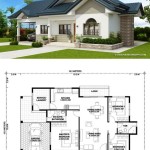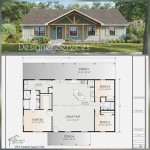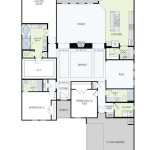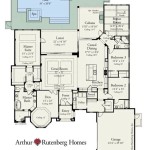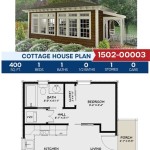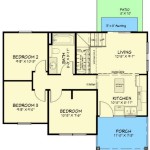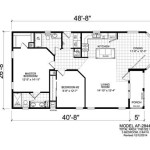Home Plans With Basement Suite: Maximizing Space and Investment Potential
The integration of a basement suite into a home plan represents a strategic decision for homeowners seeking to optimize their living space and potentially generate rental income. A well-designed basement suite can provide a comfortable and private living area, whether it’s for extended family, tenants, or as a flexible space that adapts to evolving lifestyle needs. This article explores the key aspects of home plans incorporating basement suites, delving into design considerations, legal requirements, financial benefits, and the overall impact on property value.
Before venturing into specific home plans, it's essential to understand what constitutes a legitimate basement suite. Generally, a basement suite is a self-contained living unit located within the basement of a primary residence. It typically includes a separate entrance, a kitchen, a bathroom, a living area, and sleeping quarters. However, the exact definition and requirements can vary significantly depending on local building codes and zoning regulations. Therefore, a thorough investigation of these regulations is the crucial first step.
Understanding Zoning and Building Codes
Zoning bylaws dictate the permitted uses of a property and control the type of structures allowed within a specific area. Many municipalities have specific zoning regulations that govern the legality of secondary suites, including basement suites. These regulations often address aspects such as minimum lot size, parking requirements, maximum suite size, and setbacks from property lines. Failure to comply with zoning bylaws can result in hefty fines and the potential requirement to dismantle the suite altogether. Consulting with the local planning department or a qualified zoning consultant is crucial.
Building codes, on the other hand, focus on the safety and structural integrity of the building. These codes dictate requirements for egress windows, fire separation, smoke detectors, ventilation, plumbing, and electrical systems. A basement suite must meet all applicable building code requirements to ensure the safety of its occupants and prevent potential legal liabilities. Obtaining the necessary building permits and adhering to inspection schedules is paramount. Neglecting building code requirements can lead to significant safety hazards and invalidate insurance coverage.
Design Considerations for Basement Suites
Effective design is crucial for creating a functional and appealing basement suite. Several factors must be considered during the design process to maximize space, ensure privacy, and comply with building codes.
Entrance and Egress: A separate and dedicated entrance is a fundamental requirement for most basement suites. This entrance should provide direct access to the suite without requiring passage through the main house. The entrance must also meet egress requirements, ensuring a safe escape route in case of fire or other emergencies. This often necessitates a compliant egress window in the sleeping area.
Light and Ventilation: Basements are inherently prone to darkness and poor ventilation. Therefore, maximizing natural light and ensuring adequate ventilation are essential for creating a comfortable living environment. Larger windows, window wells, and strategic use of mirrors can help brighten the space. Installing a proper ventilation system, including exhaust fans in the bathroom and kitchen, is crucial for preventing moisture buildup and maintaining air quality.
Soundproofing: Sound transmission between the basement suite and the main house can be a significant source of disturbance. Implementing effective soundproofing measures is essential for maintaining privacy and peace for both occupants. This can involve installing resilient channels on the ceiling, using sound-deadening insulation in the walls and ceilings, and installing solid-core doors.
Layout and Functionality: The layout of the basement suite should be carefully planned to maximize space and functionality. An open-concept design can make the space feel larger and more inviting. Incorporating ample storage solutions, such as built-in cabinets and shelves, can help minimize clutter. Considering the needs of potential occupants, such as families, students, or single individuals, is important when determining the layout and amenities of the suite.
Plumbing and Electrical: A separate plumbing and electrical system is typically required for a basement suite. This ensures that the suite has its own water supply, drainage system, and electrical panel. Proper planning is necessary to accommodate the additional plumbing and electrical requirements without overloading the existing systems. Hiring qualified plumbers and electricians is essential to ensure that the installations meet all applicable codes and regulations.
Accessibility: Depending on local regulations and the intended use of the basement suite, accessibility considerations may be necessary. This can involve providing ramps, wider doorways, and accessible bathrooms to accommodate individuals with disabilities. Incorporating universal design principles throughout the suite can enhance its overall usability and appeal.
Financial Considerations and Return on Investment
The decision to incorporate a basement suite into a home plan should be carefully evaluated from a financial perspective. While the initial investment can be substantial, a well-designed and legally compliant basement suite can provide a significant return on investment.
Construction Costs: The cost of constructing a basement suite can vary widely depending on the size, complexity, and finishes of the suite. Factors such as the existing condition of the basement, the need for structural modifications, and the choice of materials can all impact the overall cost. Obtaining multiple quotes from reputable contractors and carefully planning the budget is essential.
Rental Income: A basement suite can generate a reliable stream of rental income, helping to offset mortgage payments and other expenses. The amount of rental income that can be generated will depend on factors such as the location, size, and amenities of the suite, as well as the prevailing rental market conditions. Conducting a market analysis to determine the potential rental income is crucial.
Property Value: A legally compliant and well-maintained basement suite can significantly increase the value of a property. Potential buyers often view basement suites as a valuable asset, providing the opportunity to generate rental income or accommodate extended family members. However, it’s important to note that an illegal or poorly designed basement suite can actually detract from the property value.
Financing Options: Several financing options are available to homeowners who are considering constructing a basement suite. These options include home equity loans, lines of credit, and renovation loans. Exploring different financing options and comparing interest rates and terms is essential to find the most suitable financing solution.
Tax Implications: Renting out a basement suite can have tax implications for homeowners. Rental income is generally taxable and must be reported on the homeowner's income tax return. However, certain expenses associated with the rental property, such as mortgage interest, property taxes, and maintenance costs, may be deductible. Consulting with a tax professional is advisable to understand the specific tax implications of renting out a basement suite.
The successful integration of a basement suite into a home plan requires careful planning, attention to detail, and compliance with all applicable regulations. By thoroughly researching zoning bylaws, building codes, and design considerations, homeowners can create a functional, safe, and financially rewarding living space. This approach ensures that the basement suite enhances not only the homeowner's lifestyle but also the overall value of the property.

Legal Basement Suite Options Now Available Blog Vesta Properties

House Plans Floor W In Law Suite And Basement Apartement

Legal Basement Suite Options Now Available Blog Vesta Properties

House Plans Floor W In Law Suite And Basement Apartement

Basement Apartment Floor Plan Ideas Google Search Planos De Apartamentos Construcción Plano Apartamento

House Plans Floor W In Law Suite And Basement Apartement

Basement Floor Plans

3 7 Bedroom Ranch House Plan 2 4 Baths With Finished Basement Option 187 1149

In Law Suite House Plan 4 Bedrms 2 Baths 2056 Sq Ft 126 1048

Sterling Homes Calgary Launches Preplanned Legal Basement Suites

